Education plays a pivotal role in shaping our society and transforming the lives of individuals. It is a powerful tool that opens doors to success, empowering individuals to reach their full potential. In this article, I will explore the importance of education in society, its transformative power, and its impact on personal development, career opportunities, poverty reduction, social mobility, empowerment of marginalized communities, and health and well-being. I will also discuss the challenges and opportunities that lie ahead in the future of education. By the end of this article, you will understand the immense value of education in unlocking doors to success.
The Importance of Education in Society
Education is the cornerstone of any progressive society. It equips individuals with the knowledge, skills, and values necessary to navigate the complexities of the world. Education not only imparts academic knowledge but also fosters critical thinking, creativity, and problem-solving abilities. It provides individuals with a broader perspective, enabling them to understand different cultures, promote tolerance, and appreciate diversity. Moreover, education cultivates social responsibility, ethical behavior, and civic engagement, laying the foundation for a harmonious and just society.
The Transformative Power of Education
Education has the power to transform lives. It has the potential to break the cycle of poverty, discrimination, and inequality. By equipping individuals with knowledge and skills, education empowers them to overcome barriers and pursue their dreams. Education instills confidence, self-esteem, and a sense of purpose, enabling individuals to break free from the shackles of limited opportunities. It opens doors to new possibilities, expands horizons, and empowers individuals to create positive change in their lives and communities.
Education is not just about acquiring knowledge; it is a lifelong journey of personal development. It fosters intellectual growth, curiosity, and a thirst for continuous learning. Education expands our horizons, challenges our assumptions, and encourages us to question the world around us. It nurtures critical thinking, creativity, and problem-solving skills, equipping us with the tools to adapt to an ever-changing world. Through education, we develop a deeper understanding of ourselves and the world, enabling personal growth, self-discovery, and self-actualization.
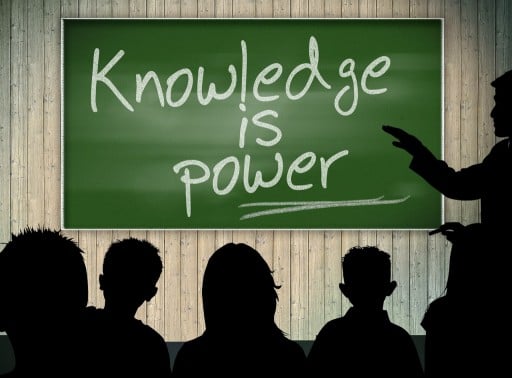
Education and Career Opportunities
Education is often seen as a pathway to better career opportunities. It equips individuals with the skills and knowledge necessary to succeed in the workforce. In a rapidly evolving global economy, education is crucial for individuals to remain competitive and adapt to new technologies and industries. Higher levels of education are associated with higher earning potential and greater job security. Moreover, education opens doors to a wider range of career options, enabling individuals to pursue their passions and interests. It provides them with the necessary qualifications and credentials to access higher-paying and more fulfilling jobs.
However, education is not just about acquiring technical skills; it also fosters essential life skills such as communication, teamwork, problem-solving, and adaptability. These skills are highly sought after by employers, as they enable individuals to thrive in a dynamic and collaborative work environment. Furthermore, education instills a strong work ethic, discipline, and a sense of responsibility, qualities that are highly valued in the professional world. By investing in education, individuals increase their chances of securing meaningful employment and advancing in their careers.
The Role of Education in Reducing Poverty
Education is a powerful tool for poverty reduction. It equips individuals with the knowledge and skills necessary to break free from the cycle of poverty and create a better future for themselves and their families. Education empowers individuals to access higher-paying jobs, improve their living conditions, and provide for their basic needs. It enables individuals to make informed decisions about their health, finances, and overall well-being. Moreover, education fosters entrepreneurship and innovation, enabling individuals to create sustainable livelihoods and contribute to economic growth.
Education also plays a crucial role in reducing intergenerational poverty. When parents are educated, they are more likely to invest in the education of their children, breaking the cycle of poverty and ensuring a brighter future for the next generation. Furthermore, education promotes social mobility, enabling individuals from disadvantaged backgrounds to overcome barriers and achieve upward social and economic mobility. By investing in education, societies can create a more equitable and inclusive future, where opportunities are not limited by one’s socio-economic status.
Education and Social Mobility
Education is a powerful tool for social mobility. It provides individuals with the opportunity to improve their social standing and achieve upward mobility. Education enables individuals from disadvantaged backgrounds to overcome barriers and access higher-paying jobs, better living conditions, and improved social status. By equipping individuals with the necessary knowledge, skills, and qualifications, education levels the playing field and reduces the influence of socio-economic factors on one’s opportunities for success.
Moreover, education promotes equality of opportunity and breaks down social barriers. It provides individuals from diverse backgrounds with a shared experience and common understanding, fostering social cohesion and promoting social integration. Education promotes tolerance, empathy, and respect for diversity, enabling individuals to build inclusive communities and contribute to a more just and equitable society. By investing in education, societies can create a more equal and socially mobile future, where success is not determined by one’s background but by one’s abilities and efforts.
Education and Empowerment of Marginalized Communities
Education has the power to empower marginalized communities and give voice to those who have been historically oppressed and marginalized. By providing access to quality education, societies can level the playing field and create opportunities for individuals from marginalized backgrounds to succeed. Education enables individuals to challenge social norms, question the status quo, and advocate for their rights and the rights of their communities.
Education also plays a crucial role in empowering women and girls. When girls are educated, they are more likely to delay marriage, have fewer children, and participate in the workforce. Education empowers women to make informed decisions about their health, finances, and overall well-being. It enables them to break free from traditional gender roles and contribute to the social, economic, and political development of their communities. By investing in the education of women and girls, societies can create a more equitable and inclusive future, where gender equality is realized and women’s rights are respected.
The Impact of Education on Health and Well-being
Education has a profound impact on health and well-being. It equips individuals with the knowledge and skills necessary to make informed decisions about their health and lead healthy lifestyles. Education promotes health literacy, enabling individuals to understand health information, navigate healthcare systems, and make choices that promote their well-being. Moreover, education fosters critical thinking and problem-solving skills, enabling individuals to analyze health-related information, evaluate its credibility, and make evidence-based decisions.
Furthermore, education has a positive impact on mental health. It provides individuals with the necessary tools to manage stress, cope with challenges, and maintain positive relationships. Education fosters a sense of purpose, belonging, and connection, which are essential for mental well-being. Moreover, education promotes resilience, enabling individuals to bounce back from setbacks and navigate life’s challenges. By investing in education, societies can create a healthier and more resilient population, where individuals are empowered to take control of their health and well-being.
The Future of Education: Challenges and Opportunities
The future of education is filled with both challenges and opportunities. Rapid technological advancements, changing labor markets, and global challenges such as climate change and pandemics pose significant challenges to education systems worldwide. Education systems need to adapt to these changes and equip learners with the necessary skills and competencies to thrive in the 21st century. This requires a shift from traditional models of education to more innovative and learner-centered approaches.
Moreover, access to quality education remains a major challenge, particularly for marginalized communities and individuals in low-income countries. Inequities in access to education perpetuate social and economic disparities and hinder progress towards achieving the Sustainable Development Goals. Governments, policymakers, and stakeholders need to prioritize education and allocate resources to ensure that every individual has access to quality education.
However, with challenges come opportunities. Technological advancements have the potential to revolutionize education and make it more accessible, inclusive, and personalized. Online learning platforms, digital resources, and mobile technologies enable individuals to access education anytime, anywhere. Furthermore, innovative teaching methods and pedagogical approaches can enhance learning outcomes and engage learners in meaningful ways. By embracing these opportunities, education can become more inclusive, equitable, and responsive to the needs of learners in a rapidly changing world.




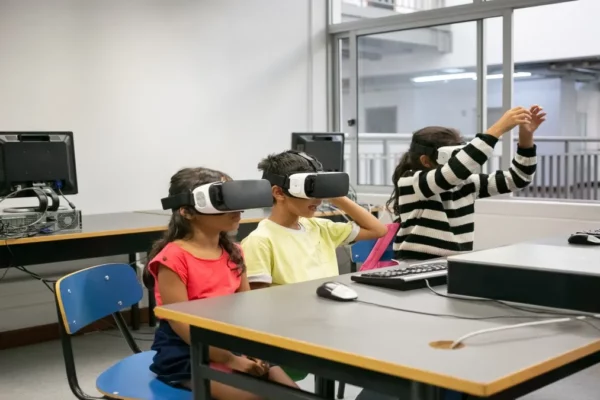
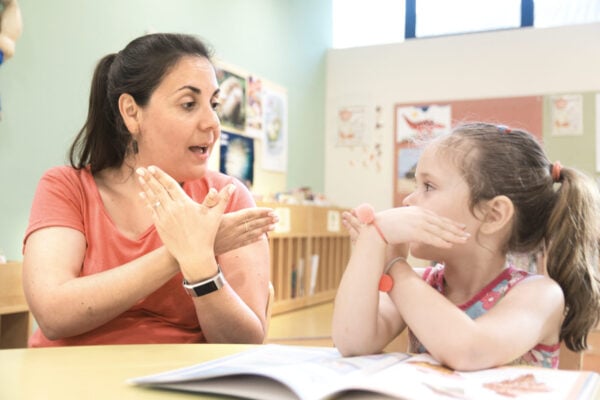

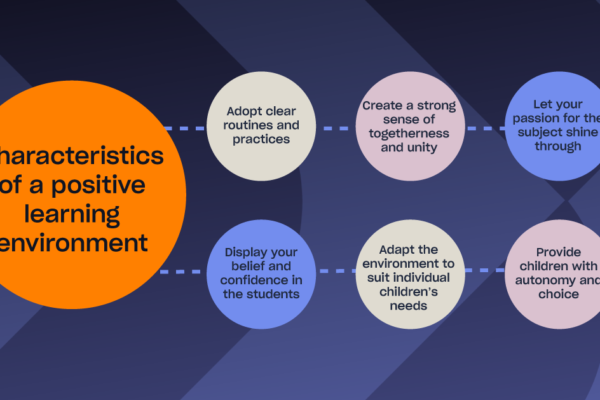

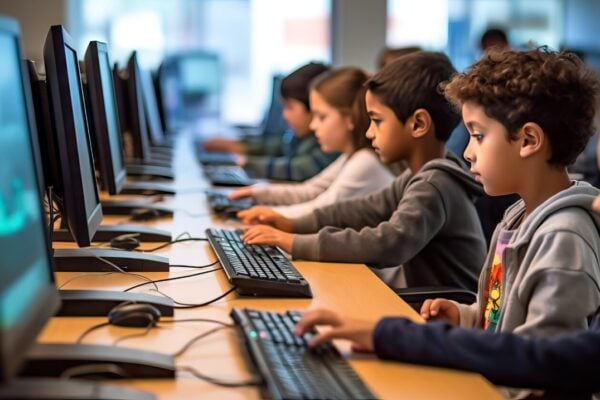
Comments on " The Transformative Power of Education: Unlocking Doors to Success" :